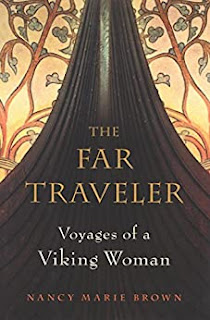Book Review - Five Stars
River
of the Gods by Candice Millard
I
first listened to this as an audio book and loved it. I next wanted
more and read the digital edition, again great.
Richard
Burton was an exceptionally brilliant person with an inquisitive mind and
incredibly profound ability to master languages, dialects, and study
religions objectively. He took on exploration in deepest Africa in search
of the headwaters of the Nile River. This is an unforgettable book
and intriguing story of unconscionable rivals out to steal the
thunder and plunder.
Excerpts:
Richard
Burton had joined the 18th Regiment of Bombay Native Infantry, a
regiment within the East India Company. Realizing that one of the
fastest ways to rise through the ranks was to become an interpreter.
He had begun studying Hindustani immediately upon arriving in India
and six months later easily passed first among the many gifted
linguists taking the exam.
He
steadily added languages to his long list: Gujarati, Marathi,
Armenian, Persian, Sindhi, Punjabi, Pashto, Sanskrit, Arabic, Telugu,
and Turkish, rarely placing second to even his most talented rivals.
In
his book Falconry in the Valley of the Indus—one of five books he
wrote between 1851 and 1853—he used so many different Indian
dialects that he was openly mocked in a British review. “Were it
not that the author is so proud of his knowledge of oriental tongues
that he thinks it desirable to display the said knowledge by a
constant admixture of Indian words with his narrative, this would be
a most agreeable addition both to the Zoology and Falconry of the
East,” the reviewer admonished
At
twenty years of age he had passed the language exams for both
Hindustani and Marathi, adding Canarese, Persian, and Arabic before
his thirtieth birthday.
Although
he had devoted most of his study to Islam, Burton was fascinated by
it all, from Catholicism to Judaism, Hinduism, Sufism, Sikhism,
Spiritualism, even Satanism. In fact, he briefly considered writing a
biography of Satan, who, to his mind, was “the true hero of
Paradise Lost and by his side God and man are very ordinary.”
The
only aspect of religion that he scorned was the idea that there
existed any true believers. “The more I study religion,” he
wrote, “the more I am convinced that man never worshiped anyone but
himself.”
Although
a spy and an infidel and an agnostic, Burton could not resist the
power of this, one of the world’s most profound religious
experiences. Joining the thousands of men who filled the mosque’s
courtyard, he circled the Kaaba seven times counterclockwise,
touching the Kiswah, an enormous black silk cloth draped over the top
of the shrine.
Burton
wrote. “Whilst the friars talk of ‘that meekness which becomes a
missioner’…they issue eight ordinances or ‘spiritual
memorandums’ degrading governors of cities and provinces who are
not properly married, who neglect mass, or who do not keep saints’
festivals. Flogging seems to have been the punishment of all
infractions of discipline.” In much of East Africa, Burton enjoyed
telling his readers, evil spirits were white.
In
1863, the same year that Abraham Lincoln issued the Emancipation
Proclamation, Burton, on leave from his consular post, became a
founding member of the Anthropological Society of London.
The
Ethnological Society of London, which had been established twenty
years earlier to “confirm by inductive science the cherished unity
of mankind Dividing those who believed in monogenism, that all human
beings shared a common ancestry, from those who argued for
polygenism, the belief that different races had different origins.
The polygenists left the society, among them Richard Burton, who now
placed his powerful intellect and years of research at the service of
a pseudoscience so twisted, destructive, and vile it would do
incalculable damage for years to come. In 1863, the same year that
Abraham Lincoln issued the Emancipation Proclamation, Burton, on
leave from his consular post, became a founding member of the
Anthropological Society of London.
To
both Hunt and Burton, monogenism was an antiquated religious concept,
used by men like Speke, who believed that Africans were the
descendants of Noah’s second son, Ham, and were thus “condemned
to be the slave of both Shem and Japeth.”
the
1859 publication of Darwin’s On the Origin of Species, however, the
foundation of monogenism had begun to shift from biblical theories to
human antiquity, from the realm of religion to that of science.
My author's page



















